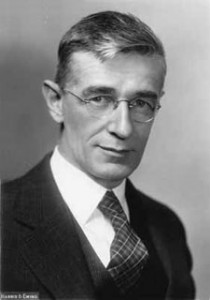
While elements of the left turned to revolutionary violence in most countries of the West at the end of the 1960s, three countries experienced this turn to a much greater extent than any other: Germany, Italy, and Japan. This fact has always intrigued me. Why these three? What facts of history or culture link the three? All three endured fascist totalitarian regimes before WW II, but so too did, say, Poland, Hungary, Greece, Portugal, and Spain. The countries of Eastern Europe, however, met the 1960s still under the Soviet imperium, and so opportunities for violent resistance were few, and in any case were unlikely to come from the left. Spain and Portugal and, for a time, Greece, were still under fascism in the post-war period, so opposition tended to aim at enlarging democracy, not at violent resistance. Perhaps that history is a partial explanation, with (some of) the first post-war generation, the 68ers (in German, achtundsechziger) seeking by their armed resistance to absolve their shame at the perceived lack of resistance to fascism of their parents’ generation. Certainly the writings of the Red Army Fraction (RAF), the Red Brigades, and the Japanese Red Army give this as a justification for their turn to violence.
I have always thought that another causal factor in common between these three countries was the absence of alternating left and right governments. With a succession of right-wing and centre-right regimes in Italy and Japan, and right-wing and grand-coalition (right-and-left-together) regimes in Germany, how were views in favour of socialist change able to be represented and heard? Indeed, in the German Federal Republic, the communist party had been declared illegal in 1956, and remained so until its reformation (under a new name) until 1968. And even the USA may not be an exception to this heuristic: In 1968, the candidate of the major party of the left, Hubert Humphrey, was a protagonist for the war in Vietnam (at least in public, and during the election campaign). And while the candidate of the major party of the right, Richard Nixon, had promised during the campaign to end the war, once in office he intensified and extended it. For anyone opposed to the war in Vietnam, the democratic political system appeared to have failed; indeed, one of those who had most publicly opposed the war, Robert Kennedy, had been assassinated. It is interesting in this regard to note that the Weather Underground only adopted armed resistance as a strategy in December 1969, a year after Nixon’s election. In Chantal Mouffe’s agonistic pluralism view of democracy, a key role of political argument and verbal conflict is to bring everyone into the political tent. If some voices, or some views, are excluded by definition or silenced by assassination, we should not then be surprised that those excluded try to burn down the tent.
And perhaps because I like the idea of acting according to (an empirically-grounded) theory of history, I always found the primary argument of the RAF very intriguing: That by engaging in armed resistance to the capitalist state, the revolutionary left would force the state to reveal its essential fascist character, and that this revelation would awaken the consciousness of the proletariat, leading to the revolutionary overthrow of the state. Although intrigued by it, I never found this argument quite compelling: First, it could be argued that a democratic state only has a fascist character in response to, and to the extent of, armed resistance to it. So predictions of its fascist tendencies become self-fulfilling. Second, the history of countries ruled by fascism in the 20th century surely shows that life under totalitarian rule makes organizing and engaging in dissident activities, particularly group-oriented dissident activities, less not more feasible. Third, I believe strongly that not only do ends not usually justify means, but often means vitiate ends. This is the case here: suppose the violent left’s violent resistance had indeed worked in overthrowing the governments they were directed at. What sort of society would have resulted? What we know of the personalities of Andreas Baader and Ulrike Meinhof and their revolutionary colleagues leads me to think that a Cambodia under the Khmer Rouges, rather than a Sweden under Olof Palme, would be a more likely description for life in a West Germany led by the RAF. Thank our stars they failed.
These thoughts are provoked by some recent reading on the subject of leftist urban terrorism in the West, both fiction and non-fiction. The fiction concerns the psychology and consequences of life underground, long after any thrill of plotting and executing armed resistance has passed.
First, a novel about the Angry Brigade (AB), the lite, British version of the Red Army Fraction: Hari Kunzru’s “My Revolutions”. This is a gripping first-person account by someone who had participated in AB actions, and now, 30 years later, is living under an assumed name. His past comes back to him, through some not-fully-explained, but dirty, tricks that British intelligence agencies seem to be running. These dirty actions are (or rather, appear to be) targeted against those who were on the edges of the violent left, but not part of it, who have now risen to prominence in Government (Joschka Fischer comes to mind), and the narrator is used by the shadowy intelligence forces to blackmail or destroy the career of the target of the action. The writing is fluent and plausible, and the tale engrossing. Only occasionally does Kunzru trip: Who ever uses “recurrent” (page 4) in ordinary speech? (Some people may say “recurring”.) Precisely how does the sun beat down like a drummer? (page 10). But most of the novel reads as the words of the protagonist, and not the words of the novelist, indicating that a realistic character has been created by the author’s words.
The same cannot be said for Dana Spiotta’s “Eat the Document”. Although this book too is riveting, it is not nearly as well-written as Kunzru’s book. The story also concerns the later after-life of some formerly violent leftists, presumably once members of the Weather Underground, now living in hiding in the USA, incognito. The story is told through the purported words of multiple narrators, a technique which enables the events to be described from diverse and interesting perspectives. I say “purported” because too often the words and tone of different narrators sound the same. In addition, often a narrator uses expressions which seem quite implausible for that particular narrator, as when the teenage boy Jason speaks of “recondite” personalities in suburbia (page 74): these are not Jason’s words but those of the author.
These works of fiction are partly engrossing to me because I once unwittingly knew a former violent leftist on the lam – the Symbionese Liberation Army’s James Kilgore, whom I knew as John Pape. I wish I could say I’d always suspected him, but that is not the case. Indeed, if anything, I suspected him of being a secret religious believer. He was serious, always intense, and softly-spoken, and ideologically pure to the point of having no sense of humour. The Struggle was all, and life seemed to be all gravitas, with no levitas (at least in my interactions with him. I have no idea how much of this serious demeanor is or was his true self.) Adopting a position as a committed revolutionary is certainly an interesting strategy for a cover; one does not expect underground weathermen to be regular attenders at Trotskyist reading circles, but Pape was. (And he did the homework!) But perhaps someone with a sense of humour does not join a movement of revolutionary violence in the first place, at least not in a democracy.
In the non-fiction category is Susan Braudy’s history of the Boudin family, one of whose members, Kathy Boudin, was a member of the Weather Underground. As with Kunzru’s and Spiotta’s novels, this non-fictional account is also riveting. It is, however, appallingly badly written. For instance, for a history, the book is very fuzzy about dates – when did Jean Boudin die, for example? And much of the text reads like third-hand family anecdotes, perhaps interesting or amusing to the family but not to anyone else. (Aunty Merle always was partial to rhubarb and once asked for it in a restaurant.) And lots of very relevant information is simply not provided, for instance the prison sentences given to Kathy Boudin’s fellow-accused in 1981. As a history book, this is certainly a book.
Finally, a quick report on Hans Kundnani’s superb analysis of the extreme German left, Utopia or Auschwitz: Germany’s 1968 Generation and the Holocaust. Kundnani argues that there were competing strains within the violent German left in the 1960s and 1970s: one strain engaged in struggle (against capitalist and western imperialist injustice) as a form of remedy for the failure – or at least, the perceived failure – of their parents’ generation to resist Nazism, and other strains comprising German-nationalist and, suprisingly, even anti-semitic tendencies. The presence of such tendencies at least explains how some on the far left in the 1960s ended up on the neo-Nazi right thirty years later. Kundnani’s book is superb – interesting, well-written, humane, engrossing, and tightly-argued. I had only one small quibble, which is perhaps a typo or an oversight: On page 252, Kundnani refers to German military participation in a NATO-led attack on Serbian forces on 24 March 1999 as the “first time since 1945, Germany was at war.” Well, the Federal Republic of Germany perhaps. The DDR sent troups to join the Warsaw Pact invasion of the Czechoslovak Socialist Republic in August 1968. If I was a former citizen of the DDR, regardless of my opposition to that invasion, I would be annoyed that my nation’s history seems to have been forgotten by people writing after unification on German history.
UPDATE (2010-08-25): My remark about participation by the DDR military in the Warsaw Pact invasion of the CSSR in 1968 is wrong. The forces of the DDR were, at the last moment, stayed, as I explain here. Thanks to Hans Kundnani for correcting me on this (see comment below).
References:
Bill Ayers [2001]: Fugitive Days: A Memoir. Boston, MA, USA: Beacon Press.
Dan Berger [2006]: Outlaws of America: The Weather Underground and the Politics of Solidarity. Oakland, CA, USA: AK Press.
Susan Braudy [2003]: Family Circle: The Boudins and the Aristocracy of the Left. New York, NY, USA; Anchor Books.
Uli Edel [Director, 2008]: Der Baader-Meinhof Komplex. Germany.
Ron Jacob [1997]: The Way the Wind Blew: A History of the Weather Underground. London, UK: Verso.
Hans Kundnani[2009]: Utopia or Auschwitz: Germany’s 1968 Generation and the Holocaust. London, UK: Hurst and Company.
Hari Kunzru[2007]: My Revolutions. London, UK: Penguin.
Chantal Mouffe[1993]: The Return of the Political. London, UK: Verso.
Dana Spiotta[2006]: Eat the Document. New York: Scribner/London, UK: Picador.
Tom Vague [1988/2005]: The Red Army Faction Story 1963-1993. San Francisco: AK Press.
Jeremy Varon [2004]: Bringing the War Home: The Weather Underground, the Red Army Faction, and Revolutionary Violence in the Sixties and Seventies. Berkeley, CA, USA: University of California Press.
Some previous thoughts on beating terrorism here. Past entries in the Recent Reading series are here.






